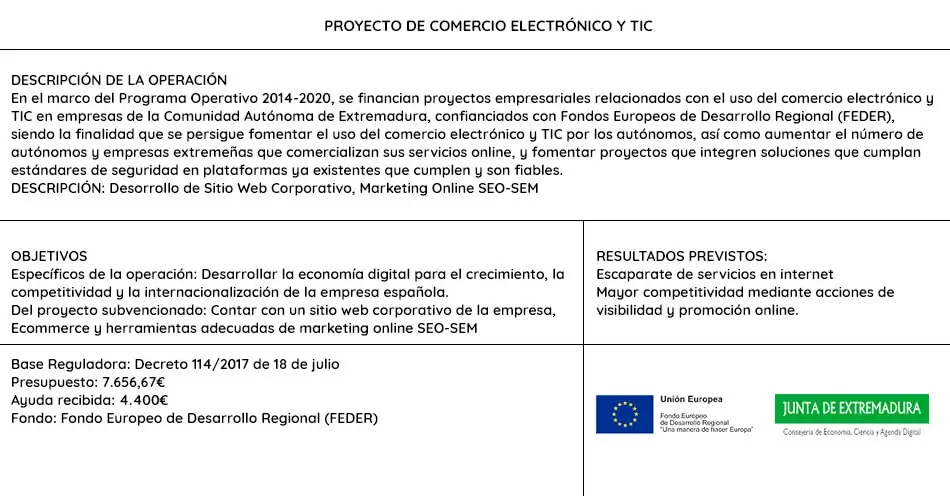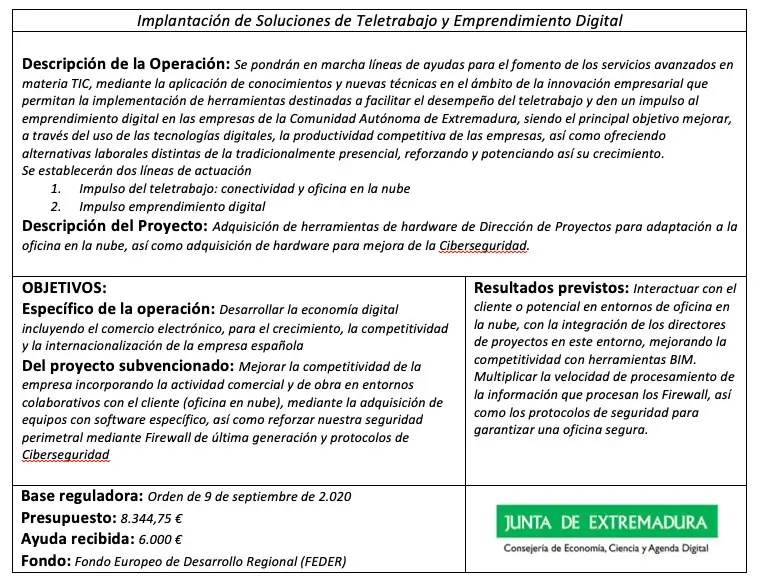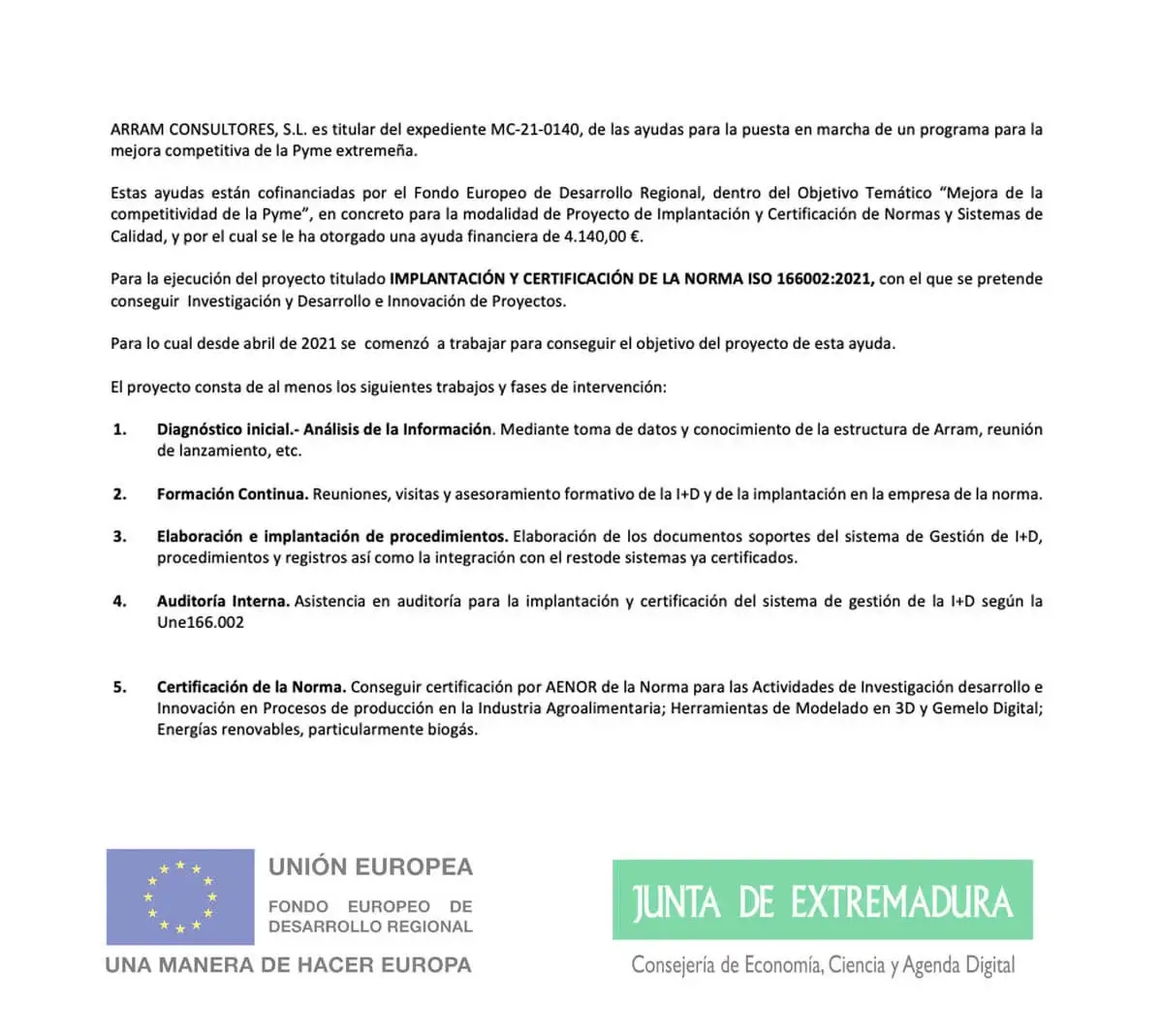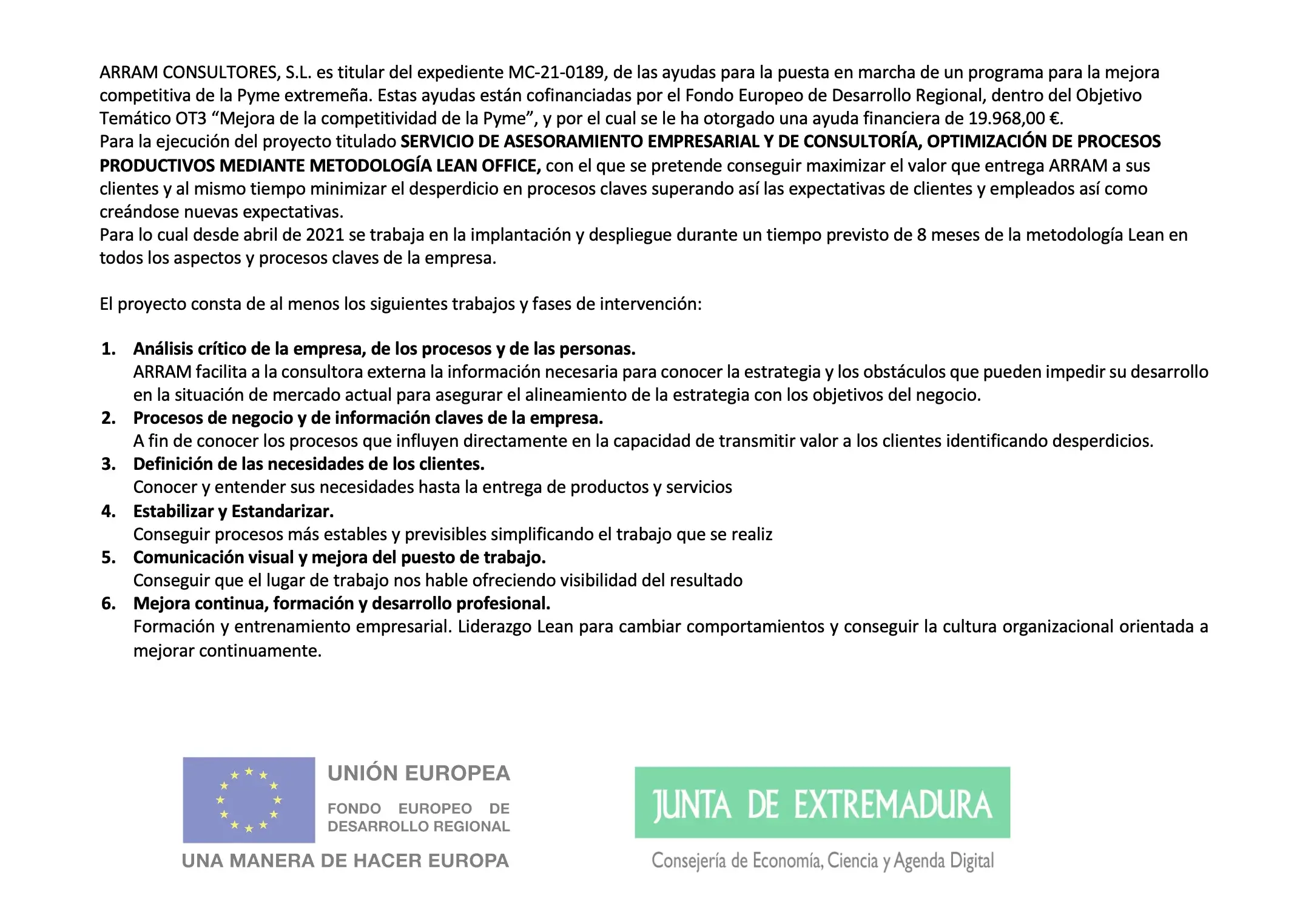We share with you the interview to our President, Carlos Arce Pardo, which was published last Sunday in HOY.es Ediciones Digitales HOY.
Our President shares with us his analysis on the current and future situation of the industrial sector in Extremadura.
#withextremaduranindustry #promotingextremadura #renewableenergy #sustainability #digitalisation #industry40
«THE CHALLENGE MUST BE TO DOUBLE INDUSTRIAL GDP IN THE NEXT 20 YEARS»
Carlos Arce President of Arram Consultores «In order to attract talent we have to offer work-life balance schedules, training and professional development options»
BADAJOZ. He believes that teleworking is here to stay. At least in the industrial engineering sector. But Carlos Arce, president of Arram Consultores, does not see it as a threat to the development of Extremadura.
–Could it lead to a further drain of talent from our region?
–I don't think so. It is true that teleworking allows companies from abroad to hire people in Extremadura, but it also allows us to hire people from abroad. Is it a threat to Extremaduran companies? It could be a threat for those companies that have not adapted to the cultural changes.
–How can companies in the region be made attractive?
–Extremaduran companies have to compete, like all companies. Extremadura has a very high quality of life, low labour conflict and, in most cases, a good working environment. If we persevere on these points, it will be attractive to come here. If we talk only about engineering, we have to realise that nowadays it is not enough just to have a salary: we have to give the professional training, professional development and flexibility at work so that their families and professional lives are compatible. In Extremadura, for many years we stopped for two or three hours for lunch. This has changed. Companies must adapt to cultural changes in order to attract people who today have a lower quality of life outside our environment and who see teleworking and Extremadura as an opportunity.
–¿Why is training so important in your sector?
– In the past, when we left university we had finished our training; today, training is permanent. Things are moving so fast that you need constant retraining. One of the great threats we face is the lack of qualified personnel. We are in a process of growth and reconversion in which the challenge is how to combine experience with digitalisation and the use and application of new technologies. Those of us who have been around for many years are not used to applying software or the latest trends. Those who know it, master it or find it less difficult to familiarise themselves with it are the young people. They have a great opportunity, but they need to think that they have a chance here. We are losing talent outside the region and we have to fight and create the conditions for them to see opportunities here and develop in our region.
Training
–¿Is the training given in the degree programmes adapted to the needs of companies? –This year, the School of Industrial Engineering asked companies to inform us about what subjects they should include in their programmes. It seems to me that this initiative to get closer to our needs is what the university should do, because it has to be predisposed to train its trainers: those who have been doing the same thing for 35 years are now obsolete. If we continue to insist on doing things the way they have always been done, we will hit the wall. Companies have also been turning their backs on universities for many years, but it is not acceptable for a young person who has just graduated from university to join a company and have to spend a year in training before he or she starts to perform. That training should be received at university. In the end, what we need is trained people.
–What else does the region need? –That Extremaduran people believe that what we do can compete abroad so that we can go out and compete. In this sense, the main deficit we have is infrastructure. We need a goods train, because taking our containers to Seville or Sines or Valencia costs us between 700 and 1,200 euros more. Infrastructures linking us to these ports will allow our products to leave under competitive conditions. Furthermore, these railway lines must be cold because the agri-food industry can generate even more food and another of our objectives must also be to compete in international markets. Likewise, it is incomprehensible that there is no motorway from Badajoz to Valencia or Seville, nor is it incomprehensible that there is no motorway linking the two capitals of the region. Roads and railways are essential for the movement of goods, but also services and people. If we want big companies to come to Extremadura, we have to make it easier for people to get here by plane. We need an aerodrome in Caceres and reasonable flight frequencies to Madrid, Barcelona and Lisbon. Finally, we need well-equipped industrial land. We have three large industrial estates - Navalmoral de la Mata, Merida and Badajoz - where a large part of the available space will be covered if the projects underway are implemented. The development of this industrial land has taken four or five years and the companies want speed when it comes to obtaining administrative authorisation. This is one of the great challenges facing the administration.
–What challenges should Extremadura set itself for the future? –I would set the challenge of doubling Extremadura's industrial GDP in the next 20 years. At the moment, 25% of Extremadura's GDP, in absolute terms, depends on the administration. This is a scourge. Industrial GDP should grow and to achieve this, large companies have to come, because with the organic growth of our companies, it would take centuries to converge. In the last ten years, thanks to European Union aid, we have made progress, but not enough. Now, the Next Generation funds are going to bring in around 10.8 billion euros. This is a great opportunity, because it is an investment that Extremadura has never had before, which we cannot afford to miss.
–¿Is there a lack of entrepreneurial spirit in the region?
–Yes, I think we are educating our children in complacency, lack of effort.... We were educated in effort, hard work, sacrifice.... The model we have is the administration and we don't all have to be civil servants. If our dream is to work in the administration, Extremadura will remain lethargic and comfortable.
INDUSTRIAL SECTOR
One of the biggest threats we face is the lack of qualified personnel
RAIL AND MOTORWAYS
«They are our big deficit, because they prevent our products from competing on a level playing field»
Interview by JOSÉ - M. MARTÍN - (Diario Hoy)





